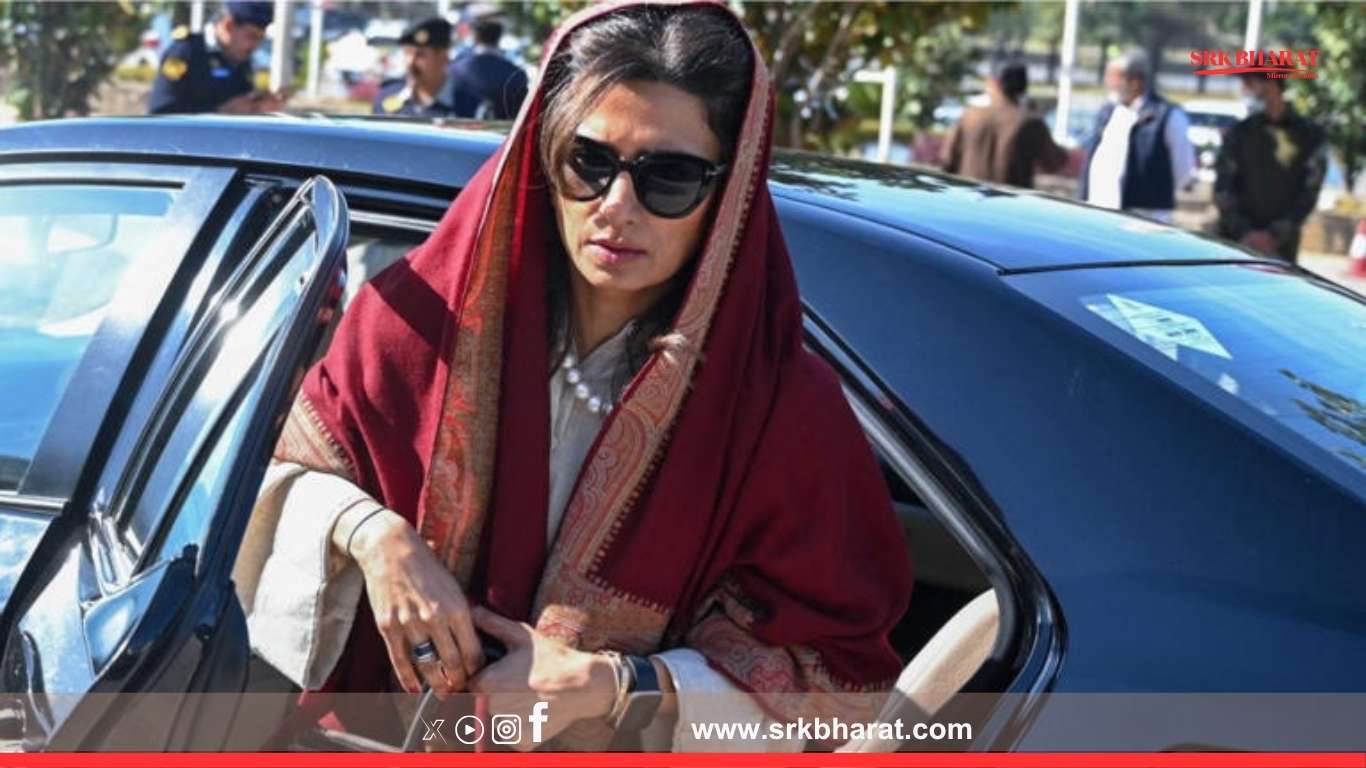Former Pakistan Foreign Minister Hina Rabbani Khar’s recent comments defending a US-designated terrorist by suggesting there are “millions named Rauf” have sparked intense criticism domestically and internationally, adding to Islamabad’s diplomatic discomfort as it struggles to shed its perceived leniency towards extremist groups.
Background Of The Controversy
The row began when the US Department of State designated Mohammed Rauf Asghar, leader of Pakistan-based Jaish-e-Mohammed (JeM), as a global terrorist, intensifying pressure on Islamabad to crack down on UN-proscribed outfits operating on its soil. In response to a journalist’s question on the US designation, Khar, in an interview, remarked:
“There are millions of people named Rauf in Pakistan. Just because someone is named Rauf doesn’t mean they are a terrorist.”
Why Her Comment Sparked Outrage
Khar’s comment was intended to downplay direct links between Pakistan and Asghar but instead backfired for three main reasons:
- Dismissive Tone: Critics saw it as trivialising a serious terror designation.
- Global Optics: Reinforced the perception of Pakistan deflecting rather than addressing terrorism concerns.
- Domestic Backlash: Even Pakistani analysts criticised the government’s inability to frame effective diplomatic responses.
Who Is Mohammed Rauf Asghar?
| Aspect | Details |
|---|---|
| Full Name | Mohammed Rauf Asghar |
| Role | Senior leader of Jaish-e-Mohammed, operational commander |
| Designations | UN Security Council 1267 Sanctions List; US global terrorist |
| Key Allegations | Planning multiple attacks in India including Parliament attack (2001) and Pathankot airbase attack (2016) |
| Brother | Masood Azhar, founder of JeM |
Reactions In Pakistan
| Stakeholder | Reaction |
|---|---|
| Opposition Politicians | Criticised Khar’s comment as “embarrassing and immature diplomacy”. |
| Security Analysts | Warned that such statements harm Pakistan’s global counterterrorism credibility. |
| Social Media Users | Mocked the comment with memes saying “Millions named Rauf but only one on UN terror list.” |
International Reactions
| Country | Comment |
|---|---|
| India | Cited the comment as proof of Pakistan’s habitual denial. |
| US Analysts | Saw it as Islamabad’s attempt to deflect rather than comply with FATF commitments. |
| Independent Experts | Said remarks undermine Pakistan’s narrative of being a serious counterterrorism partner. |
Implications For Pakistan
- Diplomatic Isolation: Weakens its credibility at UN forums where it seeks removal from grey lists.
- FATF Pressure: May impact ongoing assessments despite recent exit from the grey list.
- India-Pakistan Relations: Hardens New Delhi’s stance on bilateral security cooperation.
- Public Perception: Erodes domestic confidence in government diplomatic competency.
Historical Pattern Of Similar Remarks
| Year | Statement | Criticism |
|---|---|---|
| 2019 | PM Imran Khan: “No militants here, only tourists.” | Criticised for ignoring presence of militant networks. |
| 2020 | Pak UN envoy: “We cannot act against everyone listed.” | Viewed as admission of selective compliance. |
| 2024 | Hina Rabbani Khar: “Millions named Rauf.” | Seen as evasive and damaging to national image. |
Analysts Weigh In
| Expert | Organisation | Comment |
|---|---|---|
| Dr. Ayesha Siddiqa | Defence Analyst | “Such remarks show Pakistan is still using wordplay rather than concrete action to address terrorism charges.” |
| Michael Kugelman | Wilson Center | “The dismissive tone is damaging, especially when Pakistan wants recognition for its counterterror efforts.” |
| Lt Gen (Retd) Talat Masood | Security Expert | “Diplomacy requires nuanced responses, not flippant comments on sensitive global issues.” |
The Reality Of Terror Designations
Unlike general criminal charges, UN and US terror listings involve multiple agencies, cross-border intelligence, and stringent verification before public declaration. Pakistan’s deflection using commonality of names ignores:
- Detailed identifiers used in designations: Full name, aliases, family connections, operational roles.
- Global monitoring mechanisms: Asset freezes, travel bans, and arms embargoes implemented internationally.
- Diplomatic consequences: Failure to act can lead to sanctions or reduced foreign aid.
Domestic Social Media Trends
| Hashtag | Sentiment |
|---|---|
| #MillionsNamedRauf | Satirical posts mocking the comment |
| #HinaRabbaniKhar | Divided between support for her poise and criticism of her statement |
| #PakistanDiplomacy | Negative commentary on frequent diplomatic blunders |
Example tweets:
- “Millions named Rauf but only one facing UN sanctions for terrorism. Stop embarrassing us.”
- “Deflecting serious questions with casual comments isn’t smart diplomacy.”
- “She was our youngest FM and once admired for poise. This was unnecessary.”
Broader Context: Pakistan’s Counterterrorism Image
Pakistan has long been criticised for differentiating between ‘good’ and ‘bad’ militants based on strategic interests. Despite military operations against groups like TTP and ISKP, it remains accused of:
- Sheltering anti-India groups like JeM and LeT.
- Using terror proxies as leverage in regional geopolitics.
- Failing to prosecute banned outfit leaders effectively.
Possible Impact On US-Pakistan Relations
| Factor | Impact |
|---|---|
| Counterterrorism Cooperation | Could reduce trust in intelligence-sharing initiatives. |
| Defence Sales & Aid | Negative perceptions may impact congressional approvals. |
| Regional Strategy | May affect US assessments on Pakistan’s role in Afghanistan and South Asia. |
Conclusion
Hina Rabbani Khar’s ‘Millions named Rauf’ remark was aimed at deflecting direct links between Pakistan and the US-designated terrorist Mohammed Rauf Asghar. However, its dismissive undertone has backfired, fuelling criticism of Pakistan’s diplomatic approach towards international terrorism designations. As Islamabad navigates delicate regional dynamics and seeks to project itself as a credible counterterror partner, strategic and serious communication remains essential to avoid further diplomatic self-goals.
Disclaimer
This news article is prepared for general geopolitical and security news dissemination based on recent interviews, global terrorism designations, and expert analyses. Readers are advised to consult official government statements, international legal notifications, and certified counterterrorism research before deriving conclusions or framing policy, operational, or strategic decisions based on this coverage.











